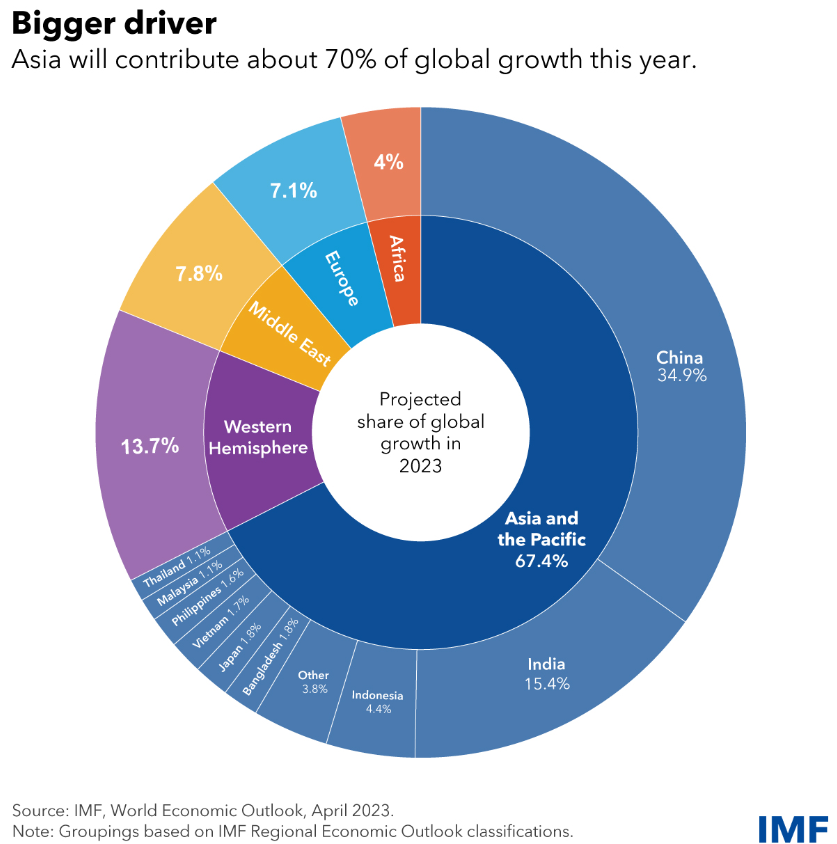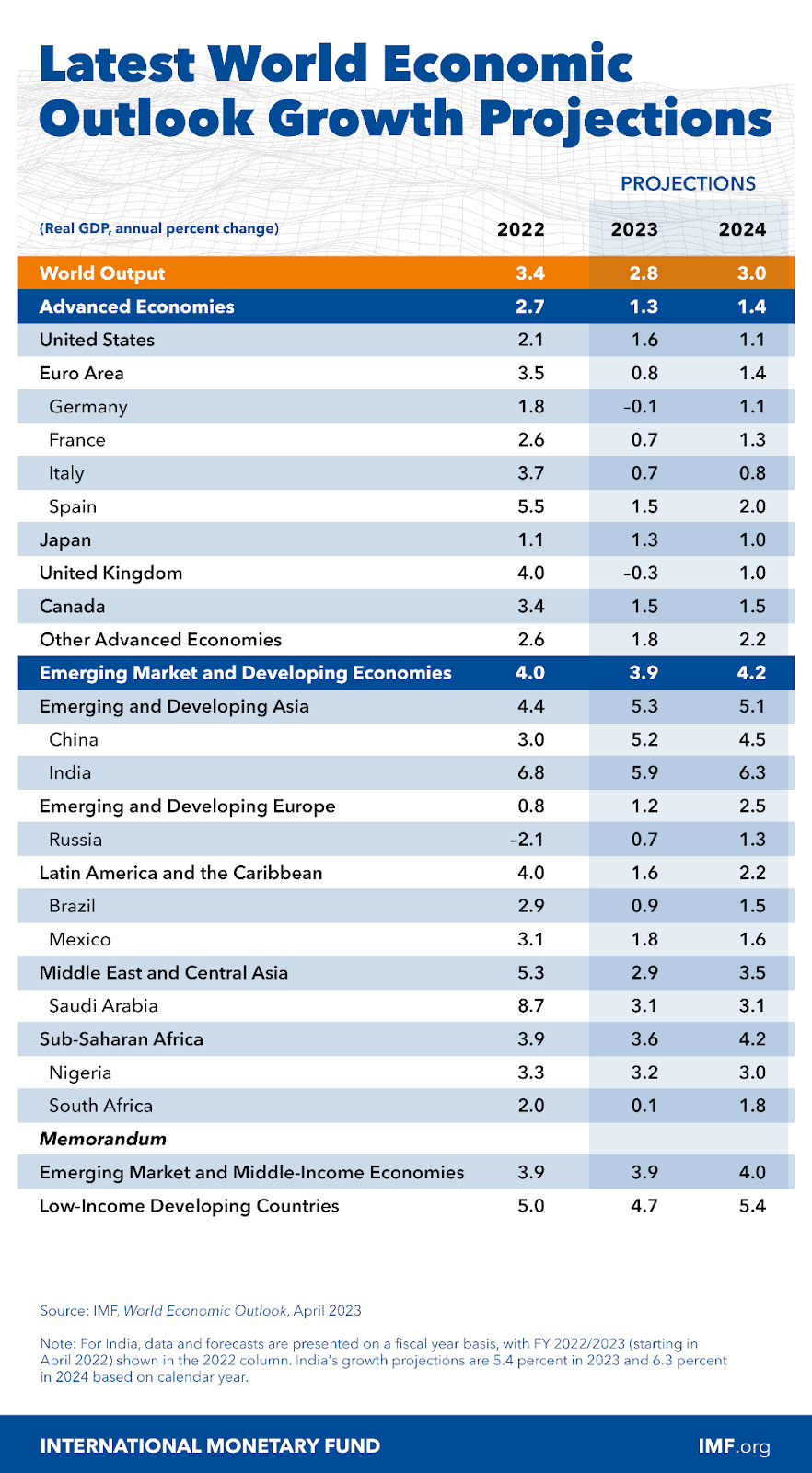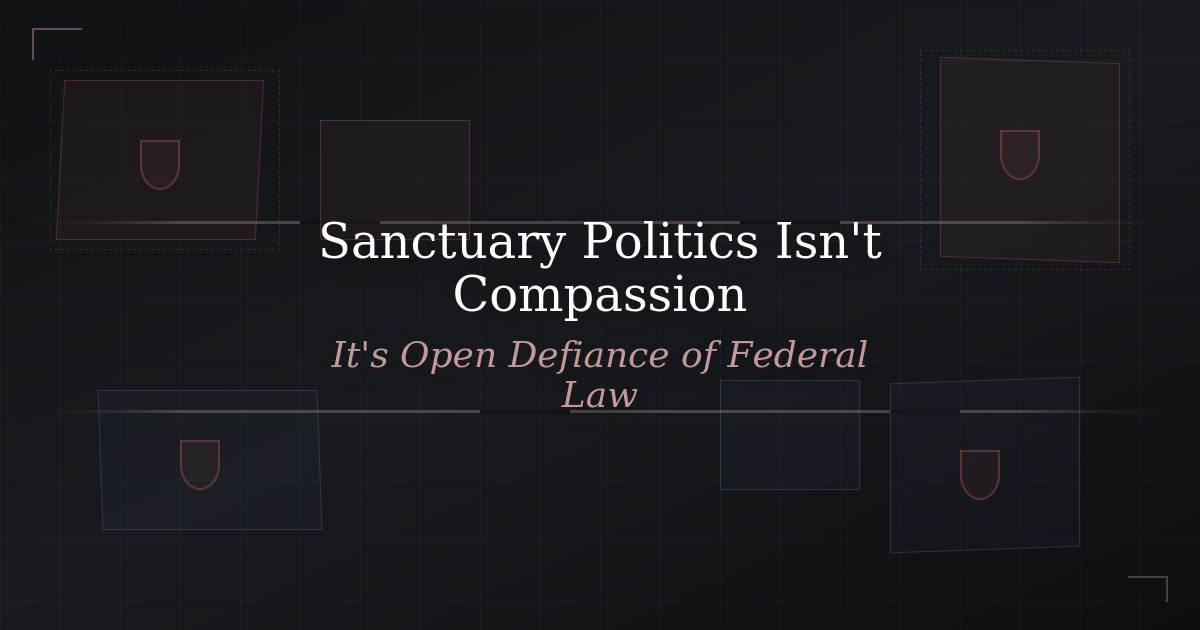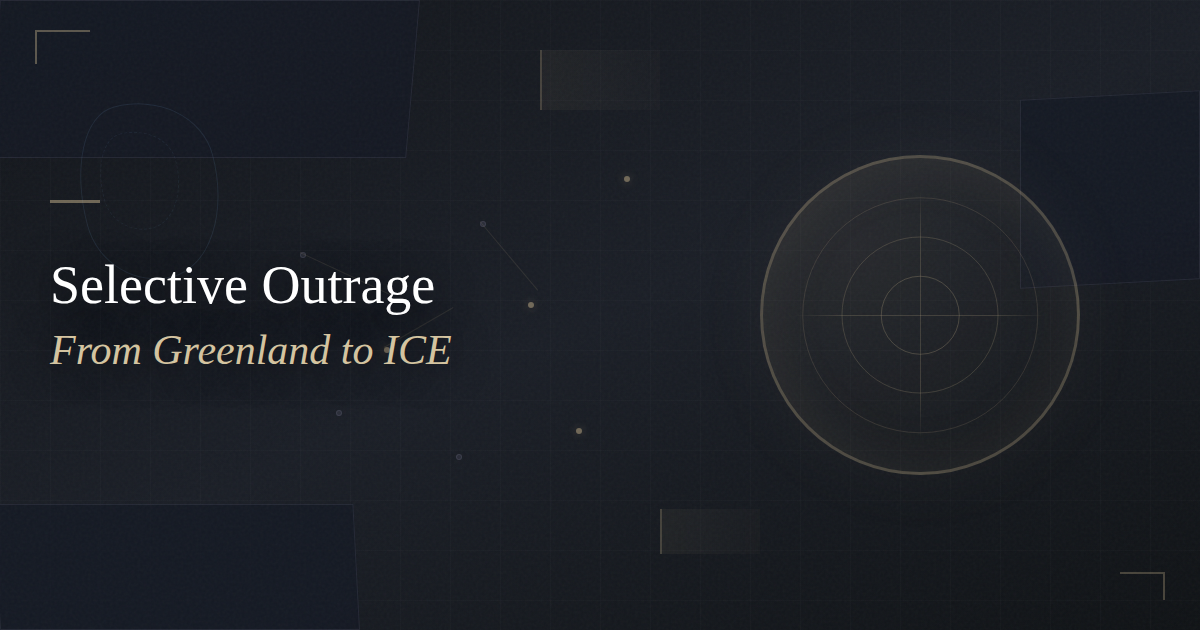Economics – May 2023: Economic Outlook Growth Projections
June 2, 2023
The outlook is uncertain again amidst financial sector turmoil, high inflation, the ongoing effects of Russia's invasion of Ukraine, and three years of COVID.

Here is the expected growth rate by country. It is interesting that Germany has experienced a bigger fall than Russia for 2023, and possibly for 2024 as well.

According to this article, India, China, and Turkey have compensated for most of the sanctions on oil and gas from Russia, as well as other goods. It is interesting to observe the future economic impact of a united G-7 compared to the rest of the world.










